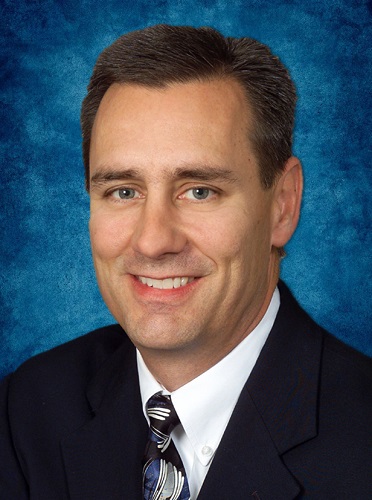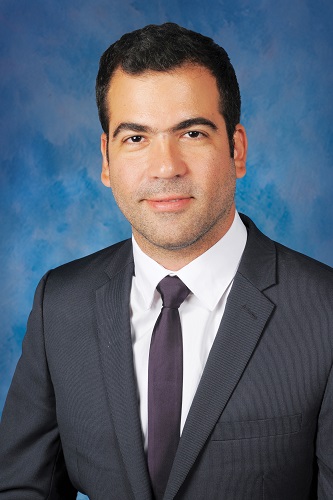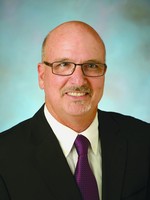By Kerting Baldwin, Ed.D., APR
Heart failure continues to grow in prevalence, affecting approximately six million adults in the U.S., a number that is expected to increase 50% by 2030. While many factors account for this trend – including an aging population, persistent risk factors in the population, and improved longevity – it is clear communities and hospitals will be significantly impacted, given the financial and labor resources required to treat the disease.

Dr. Michael Cortelli
To address these issues, Memorial Cardiac and Vascular Institute has developed a dedicated team that manages heart failure, especially in its advanced stages. The advanced heart failure and cardiac transplant program at Memorial Healthcare System, which was created in 2014, is now comprised of four board-certified heart failure cardiologists who provide expert, evidenced-based, guideline-directed medical therapy, optimizing outcomes and improving patients’ quality of life. This team works closely with Memorial’s cardiac transplant team and a multidisciplinary team of clinicians to identify those patients who may benefit from mechanical circulatory support and/or ultimately transplant.
“Advanced heart failure is a unique specialty within the field of cardiology,” said Michael Cortelli, M.D., Chief of the Memorial Cardiac and Vascular Institute. “There is a growing armamentarium of treatment options that often require extremely close monitoring and frequent fine tuning to optimize patient outcomes. We are a ‘heart function’ team that uses the latest pharmacological and non-pharmacological interventions to restore patients to normal life. Our patients receive comprehensive care targeted to the recovery of heart function.”
Training and Collaboration
This team has spent considerable time training and educating nurses and other clinicians in the essential aspects of treatment and monitoring of this patient population. As these cases are generally complex and long term, it is crucial the team works closely with other physician providers in a model Memorial Cardiac and Vascular Institute has defined as “shared care.” Each patient’s primary care physician and cardiologist are crucial members of the team, and the plan of care is developed and modified with their input.
Early identification and treatment of patients with advanced heart failure is an important component of a successful transplant program. Optimizing the patient’s clinical journey, educating, and involving them in important lifestyle changes pre-transplant facilitates the decision to move forward prior to the patient reaching an extreme level that may complicate outcomes.
“Our Advanced Heart Failure and Cardiac Transplant Program has consistently achieved excellent outcomes because of the unique Memorial multidisciplinary approach in treating these complex patients,” added Dr. Cortelli.
Technology for the Heart Failure Patient

Dr. Iani Patsias
Technology is continuously evolving, and so is Memorial’s transplant cardiologists’ approach to using newer monitoring technologies with heart failure patients. There are a number of devices that track physiological data that can be either implanted or worn. Each of these approaches has its own caveats, and advance heart failure cardiologists have to balance risk vs. benefit, especially if implanting a sensor through an invasive procedure.
“The patient has to understand and perceive its benefit to comply with data collection and deliver the data to the treatment team to act and, more importantly, prevent an admission,” said Iani Patsias, M.D., FACC, Advanced Heart Failure and Transplant Cardiologist.
Within implantable sensors, the only current FDA-approved device is the CardioMEMS (Abbott). It is a small (3.5x2x15mm) implantable sensor that is deployed after a right heart catheterization and lays on a descending branch of the pulmonary artery. It doesn’t require any charging and communicates with a pillow with an embedded receptor, transmitting pulmonary artery pressures via Wi-Fi. Memorial Cardiac and Vascular Institute has a dedicated team for remote monitoring of patients using the CardioMEMS device.
“We can trend pulmonary artery pressures in time and can detect a pattern out of normal. This would then trigger an intervention, for example, increasing diuretics, with a goal of preventing decompensated heart failure and an admission to the hospital,” said Dr. Patsias.
Overall, heart failure is a growing and daunting disease. Monitoring can greatly assist in improving patient outcomes and quality of life. At Memorial Cardiac and Vascular Institute, the advanced heart failure team has been involved in the development of newer sensor technologies, and it looks promising for patient care.
“As with any new technology, we will need to balance risk vs. benefit and apply technology that is meaningful to patient care. With new sensor technology will come a huge amount of new data. It will be interesting to see how AI plays a role in population health data management and predictive analysis of our heart failure patients,” Dr. Patsias said.
For more information on total heart care, you can visit The Memorial Cardiac and Vascular Institute at mhs.net/services/cardiac-vascular.


























